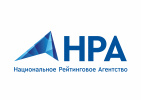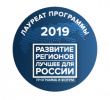On 22 May, the Private Investment vs Real Estate Market Conference took place in the Metropol Hotel Moscow. It was organized and hosted by both the Russian Guild of Property Managers and Developers (RGMD) and the RWM Capital Investment Group.
Nobody dares argue that it is needful for the modern property market of Russia to seek private investment. But for many introduction of new methods and tools is like exploring previously uncharted territory. Being faced with the same obstacles, real estate developers, investment companies, bank managers and agency brokers put their heads together to brainstorm the topic.
“With more than RUB 27tn in their bank accounts and evident dissatisfaction with the interest rates offered, private investors are keen on putting their money elsewhere to gain more profit,” said Feliks Blinov, CEO of the RWM Capital Investment Group and chairman of the Investment Committee in the RGMD. At this conference we tried to find out for sure if property is considered a good investment of private money after all and what we can do to ensure that private investment flow run steady and uninterrupted.”
Meanwhile, the Chamber of Commerce and Industry executive, Vladimir Gamza, warned that while real estate was going to be primarily funded though project finance, the Russia’s property market would shorty slide into recession.
“The market now is in a state of great uncertainty. The expectations we held at the end of last year have not been justified. And it is clear that there will be a fairly pronounced slowdown,” he said. At the same time, he thinks that the funding scheme imposed by the upcoming law changes has nothing in common with a classical project finance model.
“Escrow accounts do not mean an immediate disaster. About 80-85% of existing projects will be successfully finished as the old rules are still applicable to them. But in 18 months the market will be brought to a standstill because we will be forced to build 35-40% less than we are doing now,” said Stanislav Sagyrian, CIO at RKS Development.
Evidently, the chances of building development projects to stay afloat without looking for alternative funding tools will be very slim. Building developers need private investment. Private investors, however, are very cautious and tend to think carefully about where they put their money. And at this particular point industry experts at the conference came across REITs (real estate investment trusts).
“As an investment tool a REIT is very convenient. Basically it is a collective investment scheme that invests in a portfolio of income generating assets such as real estate, land plots, securities, etc. It may issue loans and raise loans, too. A REIT enjoys a special tax status which, above all, makes it irresistibly attractive,” said Aleksei Volodarskii, CFO of the RWM Investment Group. “
He also reminded the audience about the national collective investment pool roughly estimated at RUB 3,3tn, the amount that could come handy for property developers. “With 100% of this money kept in and managed by REITs, it sounds as if private investors find this financial scheme quite safe and not laden with risk. Consequently, the final touch needed is for the Russia’s property market to offer private investors assets which will interest them and make them pour their money into REITs,” concluded RWM’s CFO.
“People who used to put their savings into interest-earnings accounts do not do it any more primarily because, although still remaining the safest way of keeping money, it does not give them huge profits,” said Artem Golubev from Sberbank. “In search of a new opportunity, they start investing. Younger generation, however, seem to gravitate towards online share trading, with the number of private share trading accounts doubled in the last three years and the amount of money held in them increased by 5 times, while older investors prefer to play safe”.
By “playing safe” he meant investment tools largely resembling interest-earning accounts, at least at their initial stages. If in addition to these tools investors are offered attractive risk-adjusted returns and stable cash flow, then the choice is obvious.
Artem Golubev also mentioned investment bonds as a promising investment product. Although being a totally new thing for the Russia’s property market, investment bonds have been used abroad for years. Basically when people invest in a bond, they are allocated a certain number of units in the funds of their choice or those set out by the conditions of the bond. Investors may choose to invest in a range of funds, a portfolio, or a mixture of both. While each fund invests in a range of assets, such as fixed interest, shares and property.
Besides it was universally agreed at the Private Investment vs Real Estate Market Conference that technology had fundamentally changed our relationship with money. Investors are increasingly tech-forward and are moving towards financial solutions that feel personal, empowering, immediate and simple. Speakers from ROSBANK, Activo and Finam actively participated in the discussion.
In many ways, it is crucial for real estate (esp. residential property) market players to embrace disruptive technology and new business practices. Digital investment solutions are capable of energizing the whole property market and spur investment in real estate development projects.











